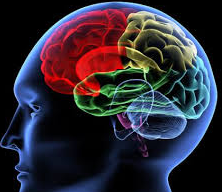 Drugs are a tool nothing more, nothing less.
Drugs are a tool nothing more, nothing less.
The characteristics of a particular drug, and the way it is used is what determines its risk, benefit, or both. Depending on the drug and those who use it, anything ranging from great harm to great benefit can result.
In this case, it is great harm.
According to a Washington Post article, a really strange and frightening drug is being used in Syria, and it gives ISIS fighters the ability to stay awake for very long periods of time, as well as alters their mental state in a way that makes them more aggressive and gives them delusions of great power.
The drug is called Captagon, and until this week, I had never even heard of it. This is unusual, since we medicinal chemists tend to have a pretty good grasp of drugs of abuse in addition to therapeutic medicines. It comes with the job.
"Captagon quickly produces a euphoric intensity in users, allowing Syria's fighters to stay up for days, killing with a numb, reckless abandon."
Hmm. What could possibly go wrong here?
Captagon is a member of the amphetamine class of drugs, but its unique structure gives it some properties that make it even worse. It is a single molecule in which amphetamine is connected to theophylline, an asthma drug that is itself a stimulant. Theophylline is almost identical in structure (and partly in function) to caffeine. Two stimulants for the price of one.
And it shows. Here are quotes from some people in the Middle East that have tried it.
- "I felt like I own the world high"
- "You can't sleep or even close your eyes, forget about it"
- "Like I have power nobody has. A really nice feeling."
- "There was no fear anymore after I took Captagon,"
It is not certain why Captagon seems to be so much worse than either of its components, especially since it is obvious just from looking at the chemical structure that it should break down to give both amphetamine and theophylline, neither of which cause the magnitude of behavioral change that Captagon does. There are several possibilities:
- Captagon itself may have stimulatory effects that are greater than either component alone.
- If so, then the user will have three different stimulants in his body
- Captagon may have little or no stimulatory effect on its own, but is taken in a large enough dose so that when it breaks down to give amphetamine and theophylline, the resulting dose of the two drugs is much higher than the normal therapeutic dose.
It's hard to imagine that this could get any worse, but it can. Amphetamine is the ADHD drug called Adderall. So, just in case these guys get distracted while making bombs, this will help them focus better.
Better living through chemistry.
Sometimes.



